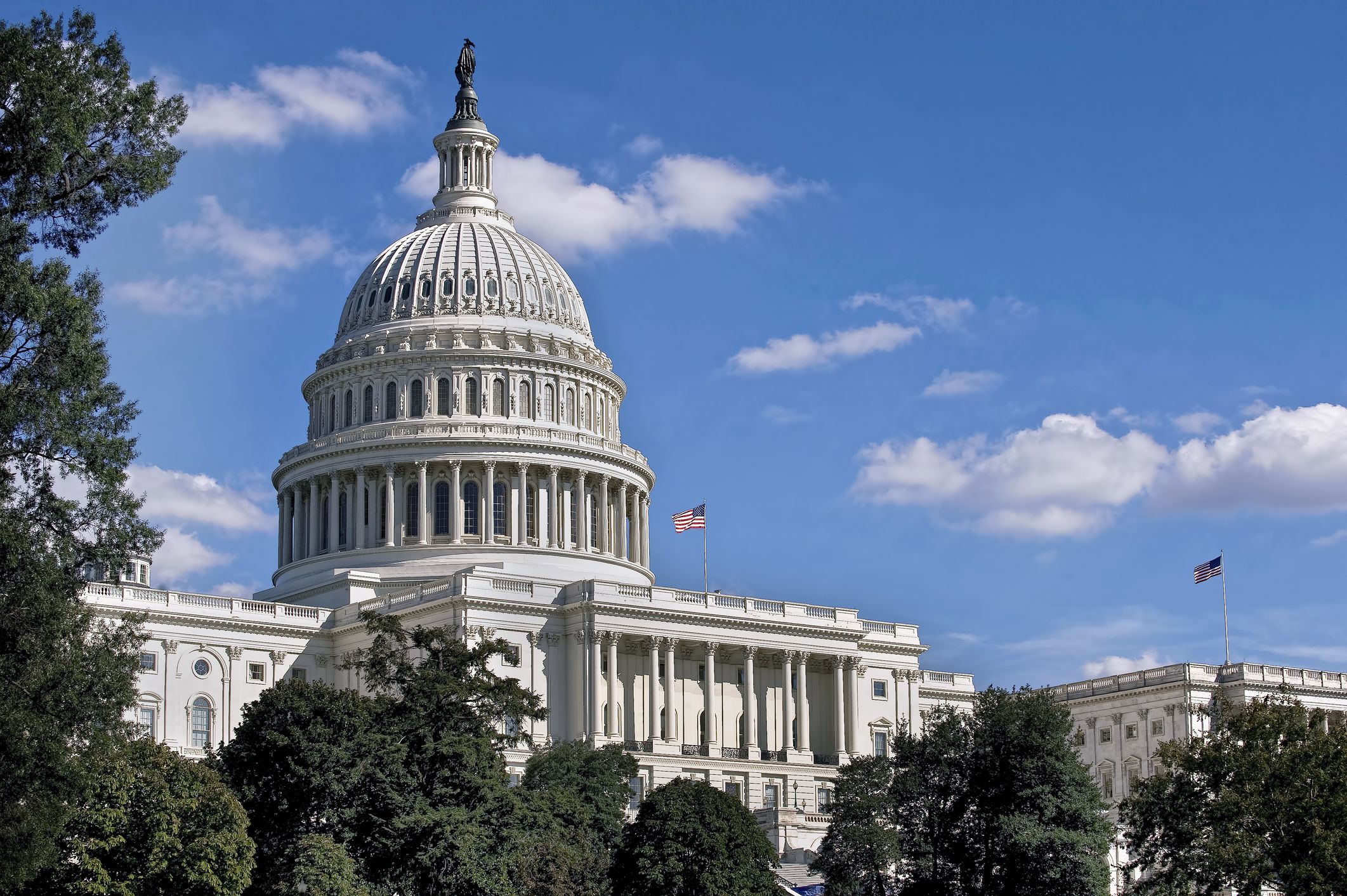
Recent bill would provide much-needed change to the most prominent source of U.S. administrative law.
Last month, U.S. Senators Rob Portman (R-Ohio) and Heidi Heitkamp (D-N.D.), joined by Senators Orrin Hatch (R-Utah) and Joe Manchin (D-W.Va.), introduced the Regulatory Accountability Act of 2017. If enacted, this bipartisan legislation would constitute the most significant regulatory reform since the Administrative Procedure Act (APA) was enacted in 1946.
The APA was the product of a decade-long, “fierce compromise” between Democrats and Republicans to set the ground rules for the New Deal administrative state. In the past seven decades, Congress has only amended the APA 16 times—arguably only four of which constituted significant changes: the Freedom of Information Act (FOIA) in 1966, the Privacy Act in 1974, the Government in the Sunshine Act in 1976, and amendments, also in 1976, waiving certain claims of sovereign immunity in suits against the government.
It has been over 20 years since Congress amended the APA at all—a FOIA modernization amendment in 1996—and about 40 years since the last significant statutory change. Modernization of the APA is needed. And the current political climate may present an ideal opportunity for such bipartisan legislative action.
Like the APA itself, the Regulatory Accountability Act is the product of bipartisan compromise. Indeed, this legislation is what bipartisan regulatory reform should look like. In a forthcoming essay, I provide an in-depth assessment of the proposed legislation. Here, I want to highlight three main points about why the Regulatory Accountability Act is the type of common-sense, bipartisan legislation needed to modernize the APA.
First, the Portman-Heitkamp Regulatory Accountability Act builds on a set of consensus-driven recommendations from the American Bar Association (ABA) and the Administrative Conference of the United States (ACUS). Last year, the ABA House of Delegates approved a resolution to amend the APA’s rulemaking provisions. The ABA Section of Administrative Law and Regulatory Practice developed the nine recommendations included in this resolution, relying on a number of prior ABA and ACUS recommendations.
The Regulatory Accountability Act adopts at least parts of seven of the nine ABA recommendations. For instance, it would amend the APA to require agencies to maintain a public rulemaking record and disclose “all studies, models, scientific literature, and other information developed or relied upon by the agency.” The bill would set minimum public comment periods of 30 days for regular rules and 60 days for major rules, with exceptions for “good cause,” and it would address the growing problem of agency use of interim final rulemaking to bypass the pre-promulgation notice-and-comment process. The legislation would also amend the APA to address the problem of midnight rulemaking at the end of a presidential administration and to codify procedures for retrospective review of outdated rules.
Similarly, the Portman-Heitkamp Regulatory Accountability Act would codify the best practices for analysis in rulemaking that have been developed and implemented by Presidents of both parties since the 1980s. Many of these best practices can be found in President Bill Clinton’s Executive Order 12,866 on regulatory planning and review and President Barack Obama’s Executive Order 13,563 on improving regulation and regulatory review. As Professor Jonathan Masur of the University of Chicago Law School has argued, “the bill thus represents a significant and positive step in the direction of rational and cost-justified regulation.”
Second, the legislation’s drafters struck a number of important, bipartisan compromises. Republicans have long called for agencies to engage in more transparent and publicly accountable processes when making rules. This legislation would require some of those procedures, such as more formalized and public cost-benefit analysis and the opportunity for a public hearing on disputed facts. But the legislation would only apply those more rigorous procedures to rules with an economic impact of at least $100 million. As the U.S. Chamber of Commerce, which supports the legislation, has noted, “the genius of the RAA is that it leaves in place the parts of the regulatory system that keep the proverbial trains running on time while requiring agencies to do more homework on the most costly and transformational rules.” According to the Chamber’s estimates, only 140 of the nearly 33,000 final rules promulgated from 2008 through 2016 would qualify as such high-impact rules.
In the details of these procedures, we find additional compromises: a “good cause” exception from the procedures; the use of “most cost-effective” as opposed to a “least costly” standard; a presumption of reasonableness if the agency considers three alternatives to the proposed rule; and a saving clause that provides that the amendments do not supersede conflicting provisions of other statutes.
Similarly, the legislation would seem to codify the less agency-friendly “hard look” version of APA arbitrary-and-capricious review that the U.S. Supreme Court recognized in Motor Vehicle Manufacturers Association v. State Farm. Yet, it would also codify the more agency-friendly remedy of remand without vacatur, which in appropriate circumstances allows an agency rule to remain in effect on remand while the agency cures certain deficiencies identified by the court.
In addition, although Republicans in Congress have been advocating for the elimination of any judicial deference to agency legal interpretations, the bipartisan Portman-Heitkamp bill would preserve so-called Chevron deference—judicial deference to an agency’s reasonable interpretation of an ambiguous statute it administers—while eliminating Auer or Seminole Rock deference, which is judicial deference to an agency’s interpretation of its own regulation. Contrary to Republican-based legislation to eliminate judicial deference, this bipartisan legislation would not replace Auer deference with de novo review, but instead would adopt the middle ground of Skidmore deference, meaning that courts would give “weight” to those agency regulatory interpretations based on their “power to persuade.”
Finally, this legislation comes at a time when some on the right would prefer fewer procedural hurdles to a “deconstruction of the administrative state.” Republicans control both chambers of Congress and, more importantly, the White House. Republicans are thus well positioned to roll back many of the Obama Administration’s regulations with which they disagree on policy grounds. The Portman-Heitkamp Regulatory Accountability Act, however, makes no distinction between regulation and deregulation. If, as critics on the left have argued, this legislation would make it harder and more time intensive for agencies to regulate, the same would be true of efforts to deregulate.
When asked at the introductory press conference about the concerns that some conservative groups have raised about the legislation’s adverse impact on deregulatory efforts, Senator Portman responded:
“What we are focused on is not whether this is going to affect one administration on the right versus one administration on the left—Republican or Democrat. It’s about what is the best policy that every administration should have to follow.”
Senator Heitkamp immediately followed up:
“That’s exactly right. We shouldn’t be making any assumptions when we’re establishing procedures… Rob and I are both lawyers. We want, if you go to court, we want those procedures to be certain and clear and provide good results. And they shouldn’t be biased one way or the other… Too few people on my side see the value in a process that will in fact allow people to engage with an administration that may not look like the administration we had the last eight years.”
Reasonable minds may disagree as to some of the legislation’s provisions. Indeed, The Regulatory Review has already featured two such critiques—thoughtful criticisms, but ones that I do not share. The Portman-Heitkamp Regulatory Accountability Act, however, deserves serious consideration and careful examination. It is the type of thoughtful, bipartisan legislation needed to modernize the APA.
This essay is part of a series, entitled Assessing the Regulatory Accountability Act.




